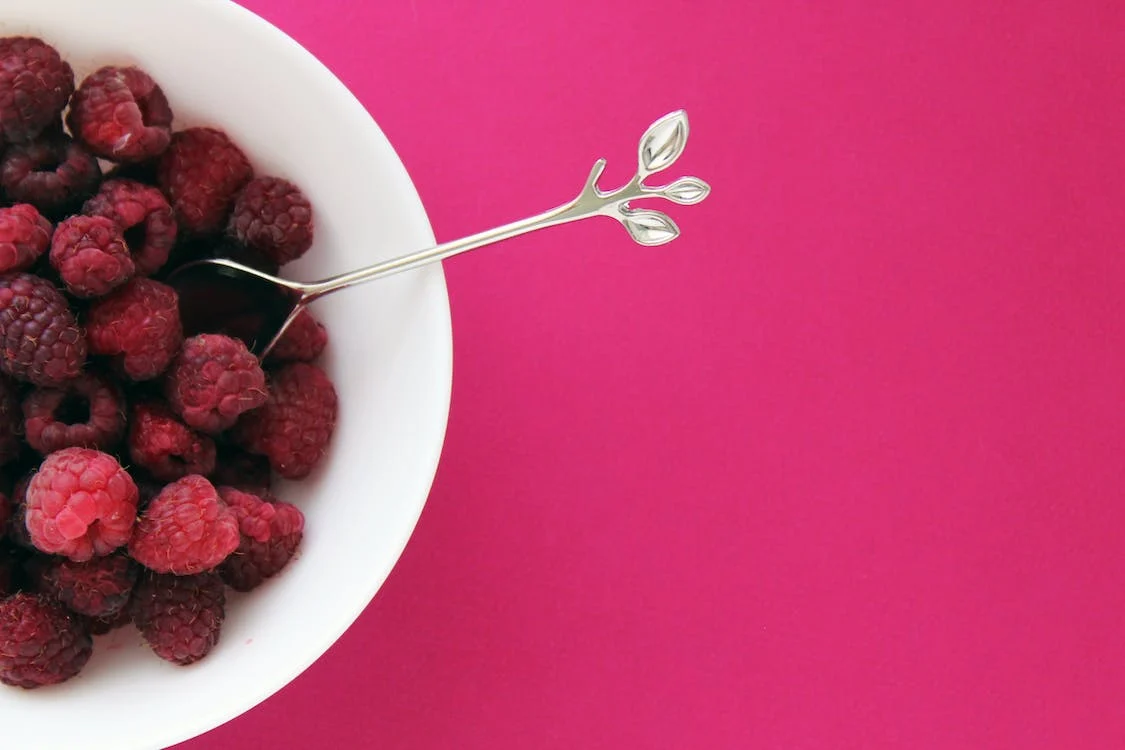As an addendum to the previous post in which I offer four lifestyle suggestions to boost your brain, this post is all about the foods that play an integral role. In fact, food may very well be the key ingredient (ha! pun absolutely intended) that determines the health – or not – of your noggin.

Berries pack the biggest brain boost for your hard-earned buck!!
Foods that support and improve brain health are whole foods – meaning God-made foods rather than Man-made foods – and predominantly plant heavy. There are three key categories to explore: fats, phytonutrients, and fiber.High quality fats are associated with a lower risk of developing dementia so load up on olive oil, avocado, nuts, seeds, and the occasional salmon if you eat fish.
- Phytonutrients is the umbrella term for the thousands of natural chemicals and compounds that are found in plants – hence the ‘phyto’. They are rich in antioxidants that protect your brain from neuro-inflammation and oxidative stress. Berries pack the biggest boost for your hard-earned buck. Berries of all kinds reduce neuro-inflammation and they contain loads of flavonoids that appear to reduce the rate of cognitive decline in older adults. In addition to berries, seek out leafy greens (the darker the better) which contain several nutrients (vitamin e, folate, carotenoids, and flavonoids) that protect against cognitive decline.
- Fiber – Just erase Metamucil from your mind right now, fiber comes in so many delicious forms! Greens and grains, fruits and ferments, legumes, seeds, and shrooms. Fiber is the power food that our gut (and our brain) needs to thrive. And if our gut isn’t happy, well none of our systems are happy. And our brain certainly isn’t happy. Forget about counting grams of protein #sooverrated, and instead aim for approximately 45g of fiber a day.

Power Your Mind with the Therapeutic MIND diet.
- MIND is the acronym for “Mediterranean-DASH Intervention for Neurodegenerative Delay.
- DASH is the acronym for Dietary Approaches to Stop Hypertension.
Both of these diets have been studied abundantly on their own and shown to be extremely effective at reversing and preventing cognitive decline. In the past 10 years, researchers have determined that putting these two therapeutic diets together creates powerful protection and support for long-term brain health.
Dr. Uma Naidoo, in her book “This is Your Brain on Food“, has an entire chapter dedicated to this approach, the research, the evidence, and the breakdown. She references several studies supporting this plan and its positive affects on everything from brain fog and memory to Alzheimer’s and Parkinson’s Disease.
Foods to favor are the leafy greens, legumes, berries, grains, olive oil, nuts (walnuts!), seeds, and occasionally fish that’s high in omega-3 such as salmon.
Foods to avoid are the components of the SAD lifestyle (standard American diet):
- processed flour and sugar
- processed meats and oils
- high fat foods – red meat and fried foods
- gluten – there is some evidence that gluten can cause brain fog so consider dropping it from your diet for two weeks and see if you improve.
Food is such powerful medicine.
While there are many contributing factors to brain fog (hormonal fluctuations, lack of sleep, digital distractions, etc), researchers are also beginning to point their fingers at excessive brain inflammation. And those same researchers are providing ample evidence that brain fog and cognitive challenges can be successfully alleviated by a whole foods, plant-based dietary approach.
Your mind is a powerful thing; let’s keep it that way!





